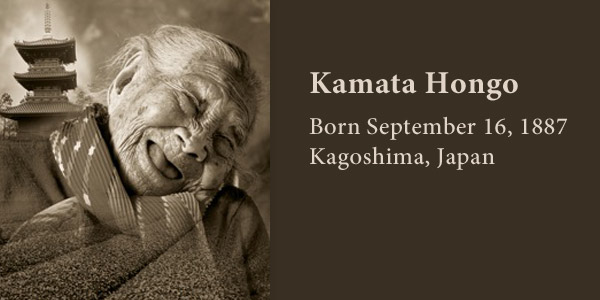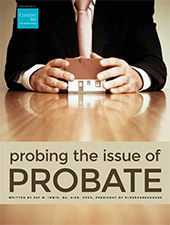A Student's Perspective on Earth's Elders
Earths Elders: The Wisdom of the World’s Oldest People, is a book by Jerry Friedman, which follows his expedition to find and photograph some of the oldest people on the planet, with the youngest being 110 years of age.
Presented in three parts, Reflections, the Journey, and the Elders, Friedman gives the reader the three different styles to learn from and enjoy- essays, his own written accounts, and interviews with the elders themselves. The stunning black and white photographs of the elders featured give it all the makings of a coffee table book – but taking the time to read it cover to cover is all the more satisfying.
With every turn of the page I was continuously amazed how long the elders’ lives had been. All of those featured were at least 6 or 7 times my age and more than twice that of even my parents! That age almost seems like a whole other world, and perhaps it is. A world free from worry where the pace has slowed, not necessarily by physical restraint, but where it is more important to feel peace than it is to feel panic. The supercentenarians’ many years on earth have allowed them the ability to take things in stride, not to rush. A world that is almost isolated from the rest of society, yet rich with stories of the past and wisdom for the future.
The history contained in the lives, now memories, of those interviewed was the most fascinating part. These people were born in another time, another chapter of society. In the late 1800’s, slavery had only recently been abolished, farming was still incredibly common, and women had not yet achieved the right to vote. Their stories drifted through important historic events, highlighted the human element of the first and second world wars and described the world as it gained speed, minorities gained rights, and society gained worries. I began to think of the supercentenarians as time-capsules, adventure novels, monuments of histories success and tragedies, snapshots of a time long gone, and living testaments to the marvel of the human story.
I read a little before bed at night, going to sleep with someone’s unique story, which happened to encase the history of a century, in my mind. What kept me up one night was the story of Mitoyo Kawate. Born on May 15, 1889, in Heroshima, Japan. She survived the world’s first atomic bomb. In a way, I believe it must have been more difficult to survive- 56 years old with the remains of an entire city at your feet. This was only one example of the extreme adversity overcome by the people featured in Earth’s Elders. What inspired me most was the fact that she greeted Friedman, an American, with a smile.
Before sitting down to read the book, I had held many misconceptions about old age. I, like the majority of young westerners, associated anyone above the age of 80 with senility, immobility and isolation. I went so far as to believe that the most conservative of ideals were all perpetuated by the older population – those holding us back from progress. Worse, I had subconsciously tucked anyone over the age of 65, save my grandparents, away in a neat compartment at the very back of my mind, and never dared to image myself as a senior. But a couple of pages in, these misconceptions had already begun to loosen, and eventually, to form a newfound respect and admiration for not just supercentanarians, but my elders in general. I enjoyed how Friedman seemed to share and sympathise with my opinions at the start of the book, reminding me that I wasn’t the only one with this backwards mindset. We set about together on his journey, both nervous and uncertain around the elderly, and I felt immediately welcome, as I slowly eased into the trip and opened my mind to the new ideas and retold wisdom.
The common threads between the elders are outlined in the second part of the book, allowing you to reflect on them as you read through the elder's individual stories and look through the beautiful photographs. The commonalities are presented less as hard evidence or as guidelines, but more as food for reflective thought. Friedman accompanies each consistency with an anecdote from his encounters with earths elders as well as a healthy dose of philosophical thinking, giving readers a chance to contemplate their lifestyle in comparison with those of the elders, the differences and similarities between the far past and their current situations and whether they can apply the elder's wisdom to them.
The overall tone of the book was very calming and inspirational. The pictures were very effective, I felt much closer to them than I would have otherwise. In fact, before reading the book I flipped through the pictures, which convinced me to sit down and read it all the way through. Friendmans’s words are well-written and entertaining. He paints a genuine picture of the supercentenarians and dots the book with pockets of humour -like Liza Johnson setting Friedman up none to subtly with her nurse. However, he doesn't fail to portray the earnestness of the issues covered, and reminds the reader gently of the fragility of life and the melancholy of isolation and old age, in the death of Minnie Davidson or John McMorran's inability to speak. Incredibly descriptive and always engaging, Earths Elders is definitely an eye-opening experience for anyone under the age of 110.
* * * * *
What inspires you most about the elders in your life? Share your thoughts in the Comments section below.
Related:
International Day of Older Persons
Age is More - Challenging Attitudes About Aging
Supercentenarians - Changing the Way We Think About Aging
Boomers Reject Ageist Ads
Sheridan Elder Research Centre


